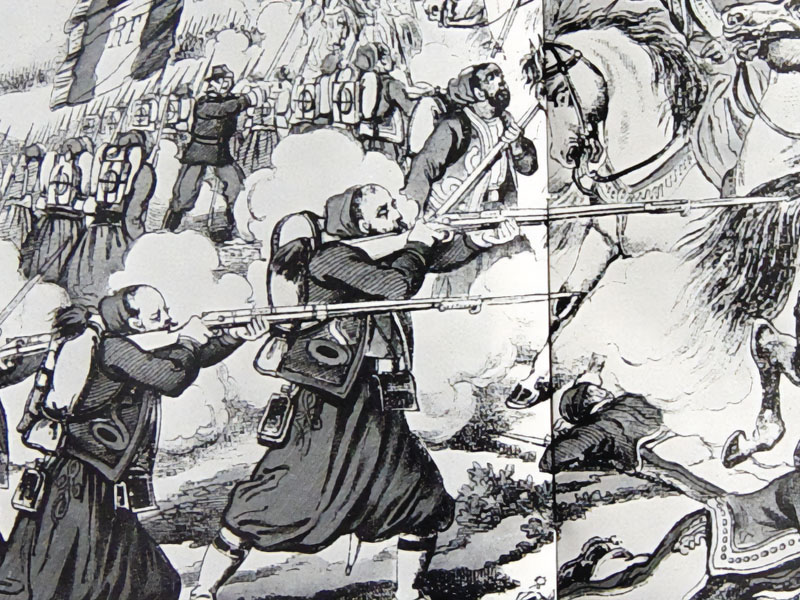Folkloric poetry and patriotic songs as resistance against the French occupation of Tunisia from 1881 to the 1930s
Issue 25

Poetry and patriotic songs were used as means to express resistance to the French occupation of south and north Tunisia, and to protect national identity and belonging.

“Every nation has its own songs representing its language, nationality, ethics and customs.”
Every nation stands firm when exposed to threats from outside, defending its culture, language, ethics, religion and traditions in an effort to drive out colonists and to retain land and identity; nations dedicate their heritage, culture and artistic expression to this end.
Isn’t art a reflection of social awareness that serves national issues, rather than something separate from the reality of society?
Ibrahim Al Haidari said, “Folk arts are characterised as public rather than personal, and are not restricted or closed in their structure.
Folk arts reflect social awareness as they are intended not for aesthetic value, but to be of social benefit because - in one way or another - they have tremendous intellectual, spiritual and ethical impacts in addition to their practical value.”
The significance and function of folk art’s practical value is associated with its use in practical situations and its cultural effectiveness and influence on people’s socialising, emotions and patriotism. This is what happened when the homeland’s culture, arts, and economy was threatened by occupation and by forewarnings of colonisation that appeared prior to 1881.
In Tunisia and other North African countries that resisted colonisation and in the rest of the Arab world, poets and folksingers have devoted themselves and their talents to their homelands throughout history.
Poets commemorate battle heroes who fought bravely and died in defence of their homelands. Tunisia has a rich heritage of poems about resisting the French colonists. Many of the poems, especially in south Tunisia, were dedicated to the joint resistance of the Tunisians and the Algerians.
Samir Idris
Tunisia







































































